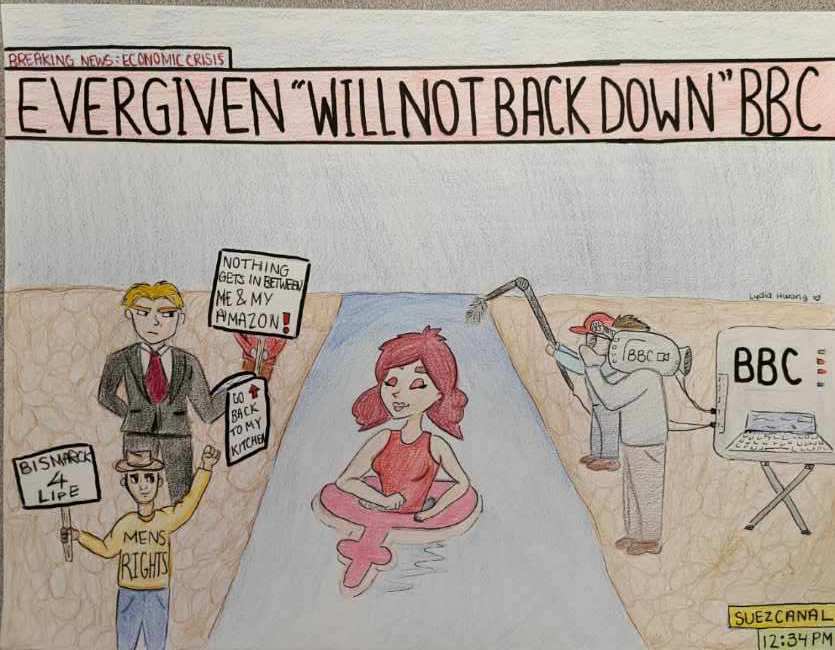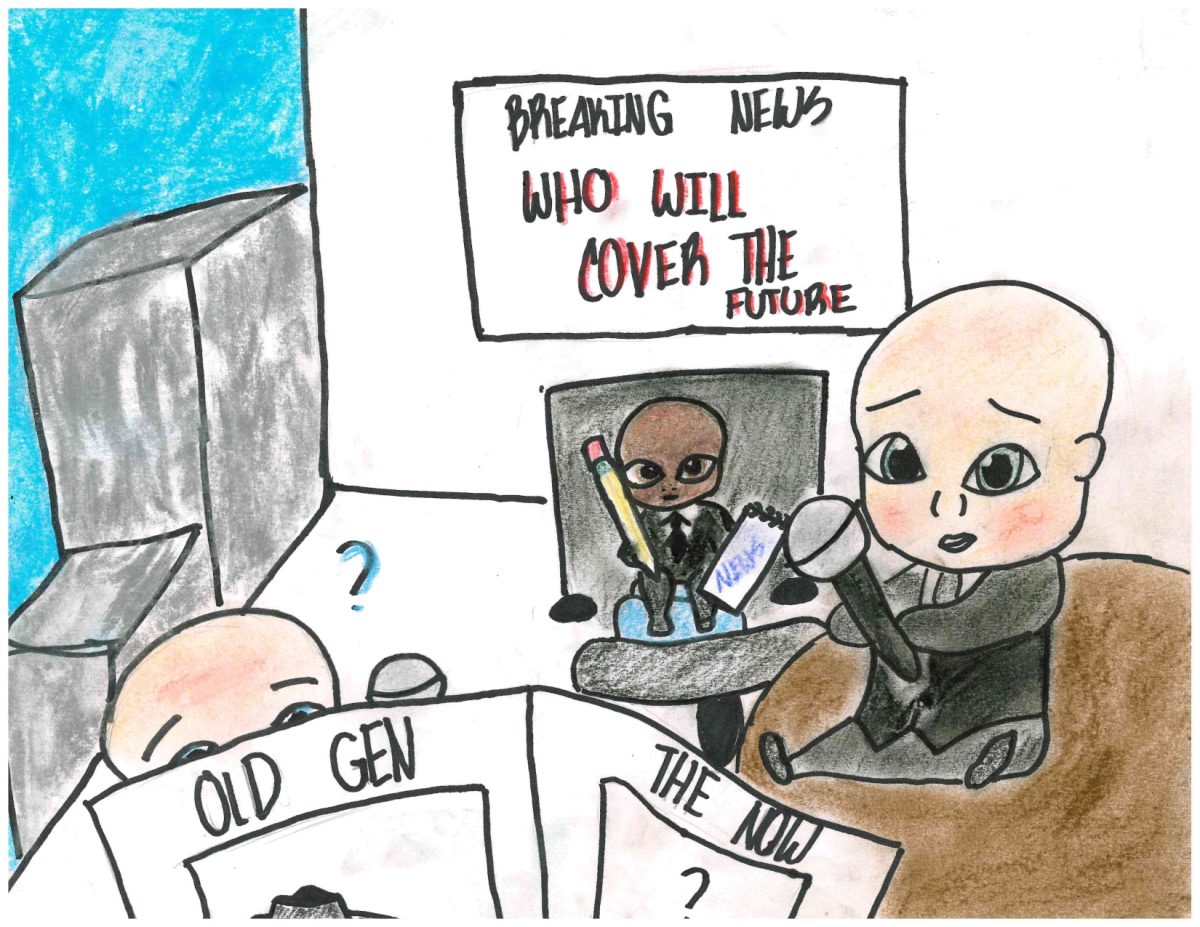To make her mark on world trade, on March 23 the cargo ship Evergiven spun to her side and blocked off the Suez Canal for over six days.
As Evergreen Transport’s most famous ship, Evergiven, caused more than a traffic jam when clogging the Suez Canal, she caused a conversation of consumption reliance.
While Evergiven had her platform for nearly a week, in new age feminism, one might wonder if this was enough time for the aspiring young carrier.
When she took a stand and blocked the Suez Canal, Evergiven spoke for not just her fellow ships, but for women around the world. The message was loud and clear. “I will not (lower my) bow to your expectations of me.”
With underlying tones of distaste for the globalization of the economy and capitalistic mass production, Evergiven used her platform to bring attention to the dependence of society on the transport of goods, and in that, the reliance on cargo ships.
Your life without readily accessible goods would not be nearly as convenient, but how often do we think about the debt we are in to cargo ships? Evergiven forced this thought into people’s minds.
The quintessential girl boss, she refused to go about her life in the way society expected her to. She behaved erratically. She asserted herself. She stood for what she believed in and did not bow down until she was forcefully removed from the premises.
With that, it may be wondered, should Evergiven have been moved before she was ready? The answer is very simple. No. It was selfish for consumers to violate her shiply autonomy because she was an “inconvenience.”
Evergiven provoked the opportunity to look within on reliance on material goods; instead, society decided to stifle her voice. Instead of forcefully moving her, society should’ve listened to what Evergiven had to say.
Too many times have women gone unheard simply because their voices were viewed as a nuisance to society’s daily occurrences. Instead of silencing these women’s protests of oppression and expectation by ignoring them, it is time to silence them by fixing the problem.
Simply posting on social media about “awareness” isn’t enough. It is time to start pressuring big business to listen to the messages Evergiven was trying to shout.
And not to name names, but societal structure does suggest that if Mr. Bismarck the German battleship had created a ruckus in the Suez Canal, it would’ve been labelled as a demonstration of capitalistic power, not an economic crisis that threatened 12% of world trade, holding up an estimated 9 billion dollars of trade each day.
However, it is not too late to recognize the detriment of reliance on globalized goods and begin the conversation Evergiven hoped to force.
In her honor, while she fades from the spotlight, it is time to review societal consumption practices that place priority on things like two day shipping.
While instant gratification feels much better, environmental concerns that come with the globalization of mass production and the ethical issues that arise with fast fashion need to be considered and prioritized. As consumers, we need to consider the impact the corporations we support have on their workers and the environment.
Activism from cargo ship played off as poten“shoal” economic crisis
[Editor’s Note: The following opinion piece is a satire.] Swinging herself broadside in a swift move of activism, cargo ship Evergiven displayed her disgust with the effects of globalization of goods. Evergiven had hoped to encourage people to talk about the environmental and economic impact of cheaply made products being shipped quickly around the world.
0
More to Discover
About the Contributor

Julia Vizza, Co-Editor-in-Chief







